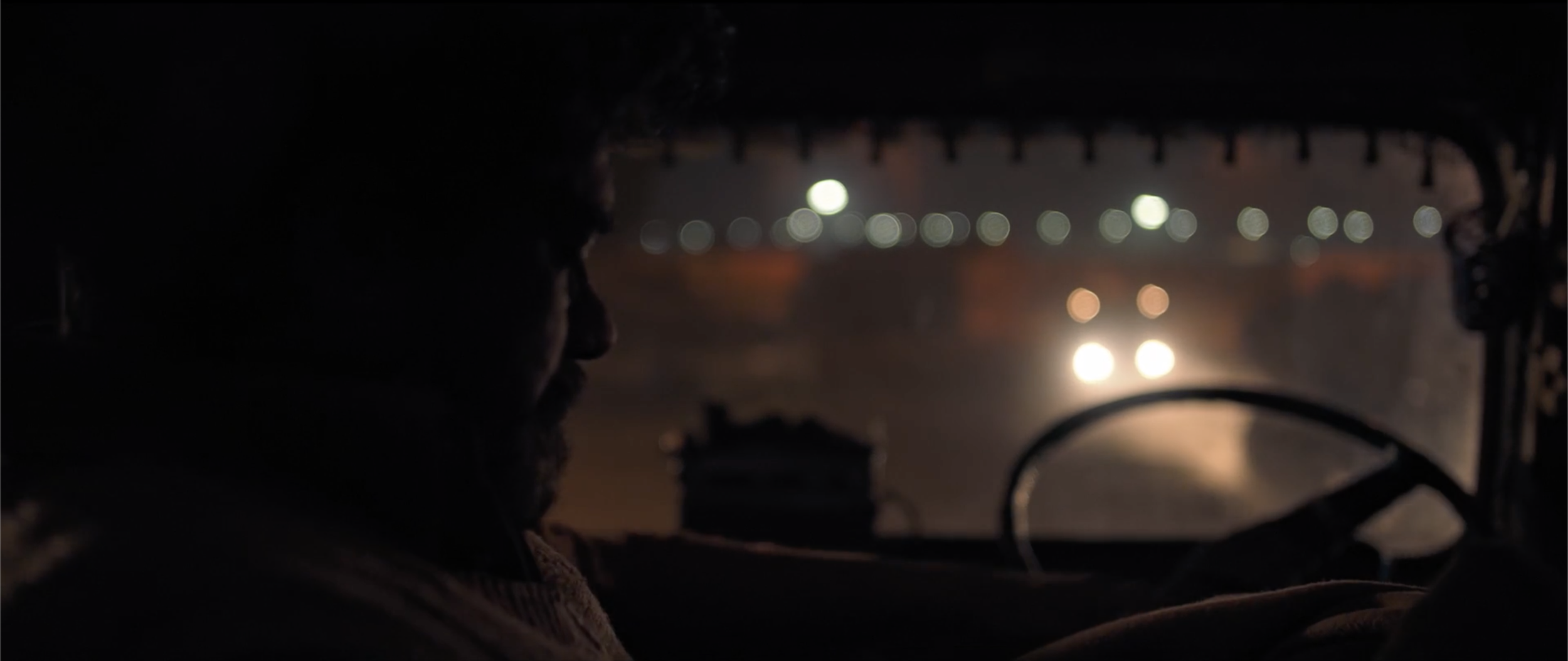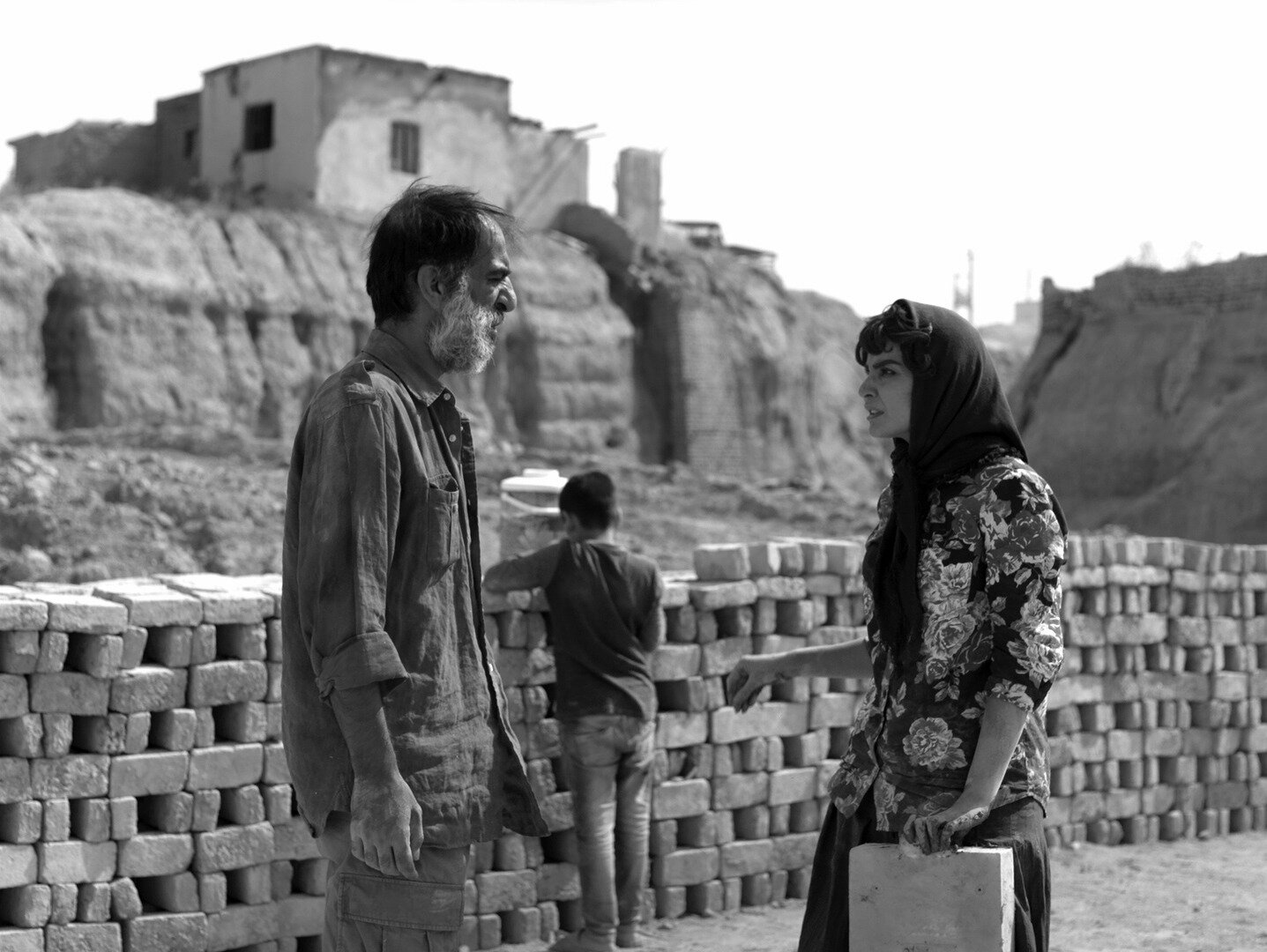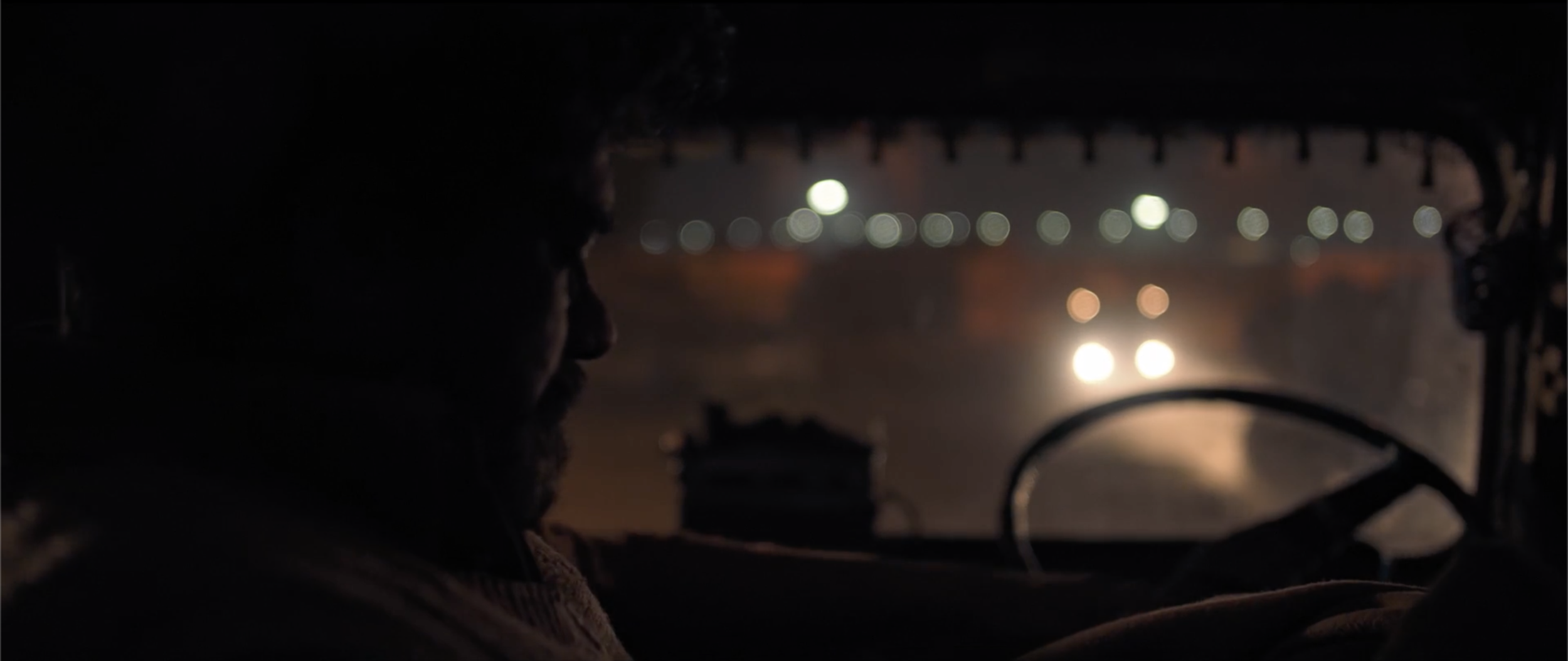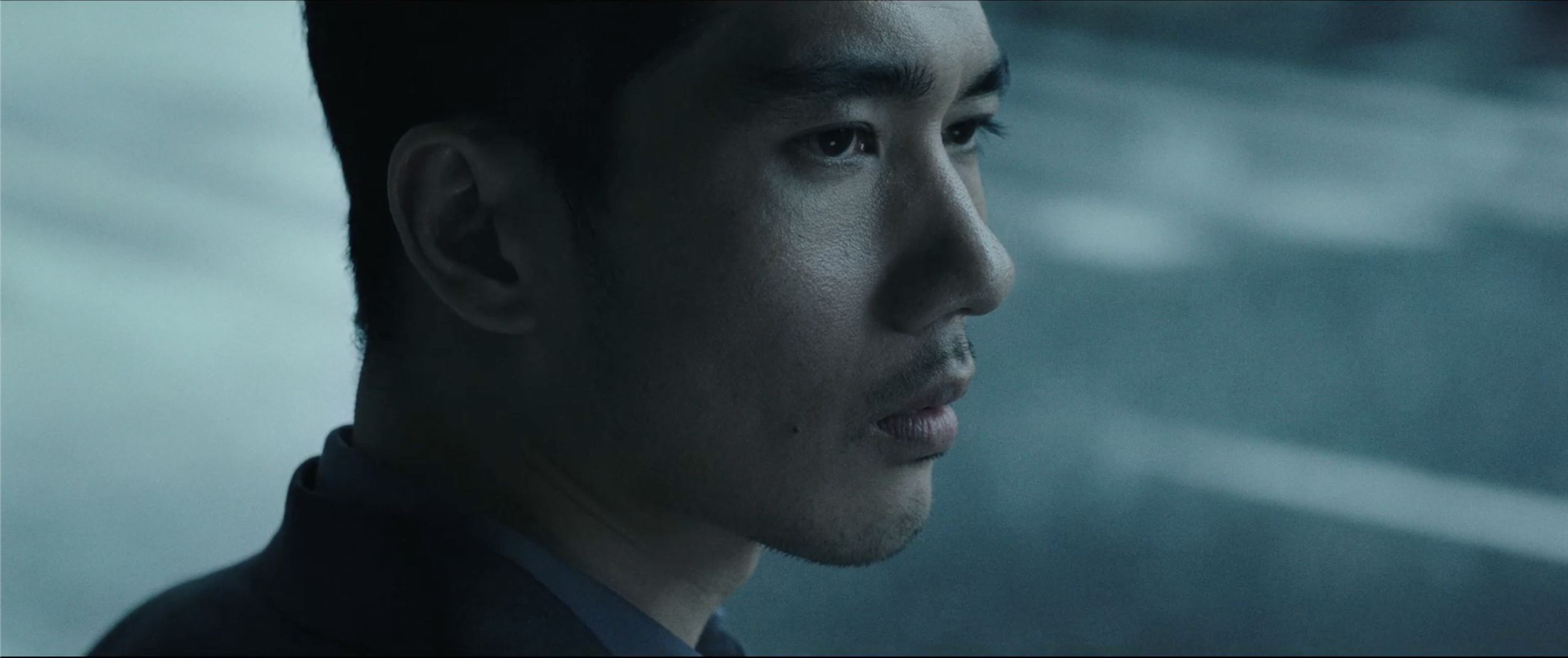Milestone (Meel patthar)
Milestone (Meel patthar)
Directed by Ivan Ayr
Starring: Lakshvir Saran, Suvinder Vicky
Country: India
Year 2020
Author Review: Roberto Matteucci
Click Here for Italian Version
"The thieves in uniform."
The truck driver is demanding work in every part of the world: dangerous roads, vehicles not always safe, very aggressive police, endless hours of driving to deliver timely, so much solitude, a house reduced to a cabin, unhealthy food, painful diseases due to the job.
In India, road mobility is an important sector, but the troubles are worst.
The motivations are many.
High employment:
“After Agriculture the Sector which has generated maximum employment in India is the Transport Sector.” (1)
It represents 14% of India's GDP:
“On top of that, approximately 14% of our GDP is being contributed to steadily by transportation and logistics in the country.” (2)
Eight and a half million trucks, with around nine million drivers, are on the ruinous Indian roads, an astounding number:
“In totality, an approximate 8.5 million trucks of all shapes and sizes ply on the winding roads and highways of India. Thus, the statistics would well point towards the presence of at least 9 million truck drivers.” (3)
They have many risks, many dangers, for minimal gain. The income is between ten thousand and fifteen thousand Indian rupees, corresponding approximately to two hundred euros per month:
“As per reports, an average truck driver in India earns somewhere between Rs. 10,000-15,000 in a month. This number in reality aligns perfectly with India’s long standing history of underpaying truck drivers.” (4)
The source of this crowd of truckers is the poor inhabitants in rural areas with insufficient education, absent in many cases:
“The sweet nectar of employment opportunities made it easy for the rural populace to ignore the concept of education completely. ... The harsh working conditions, added on to an unfair payment configuration, ensured that education held no merit in this field for a long time. Many truck drivers in the country have barely finished primary school. Since the employment opportunities are quick, people who do get into this industry and become truck drivers decide to skip school entirely to start earning as soon as possible. A large portion of truck drivers in India come from families that are in dire straits.” (5)
The humble origin of the truckers is a reason for their small consideration. They are humiliated by the authorities, by the agents, by the officers of the checkpoints, who stop them to pilfer a tip:
“It is not unknown that truck drivers appear at the bottom of the chain when it comes to respect. This fragment of the Indian transportation sector has historically been privy to an astounding lack of approbation and dignity. It is a fact that truck drivers do not get deserved respect from civic authorities like police personnel and check-post officials during the transit of freight." (6)
The disastrous consequence is bad health. Truck drivers sleep little, eat worse, sit for hours. The result is a sore stomach, acute back pain and chronic fatigue. Besides, they suffer from depression, mental problems and stress. These infirmities aggravate the already immoral reputation of truck drivers. There is a further health concern. The distance from family pushes them to copulate with prostitutes without protection:
“Since drivers are forced to stay on the roads for days or weeks, away from their families, it invariably takes a toll on their health. Lack of proper sleep and food compels them to make do with unmodulated pit stops and makeshift eateries. …
truck drivers suffer immensely from physical stresses such as back pains (21%), joint pains (14%) and neck problems (12%). On top of that, such pressures relegates them to mental health problems, from depression to anxiety to insomnia. …
Another long standing problem in the life of truck drivers is poor sexual health practices. One-third of the truck drivers in India indulge in unprotected intercourse with multiple CSWs.” (7)
These factors generate a disproportionate number of car accidents: four hundred and fifty thousand a year, of which 30% are involved transporters:
“In the wake of a country that reports over 4.5 lakh road accidents each year, 30% of which involve commercial vehicles, absence of such benefits is indeed alarming.” (8)
The cause is also the insignificant preparation of the drivers. Only 62,5% of them get the driving test:
“Just 62.5% of drivers said they took a driving test before receiving their licences. 9 out of 10 respondents confessed they did not undergo any formal training before getting a driving licence.” (9)
A truck driver drives for about twelve hours a day, covering about 400 kilometres.
Countless adversities, complexities, physical and psychological make, the Indian truck driver life, infernal.
The talented Indian director, Ivan Ayr, narrates the human and social multiplicity of the truck driver work, in the film Milestone - Meel patthar presented at the 77th Venice Film Festival.
In Venice in 2018, he proposed the film, Soni. In which Ivan Ayr exposed humanity, the fatigue, the contradictions of the policewoman in the city of Delhi.
The driver Ghalib has reached five hundred thousand kilometres on the roads. He is an experienced driver, he has the record at his company. He knows all the secrets of the street. He is skilled to tackle complications, he satisfies, in the right way, the various requests of the police. He is a reliable person, he responds positively to the wishes of his bosses. However, he begins to get old, with many pains. Suddenly, the management added, to assist Ghalib, the young aspiring driver Pash.
Could this inexperienced guy be his successor? Is his job at risk?
This atrocious doubt is accompanied by his intimate drama. Ghalib's wife killed herself and his relatives accuse him of being responsible, demanding compensation. His wife's country is in the state of Sikkim, in the north of India, on the border with Nepal and Bhutan. The village council concedes him thirty days to find a fair solution.
As in Soni, Ivan Ayr's themes are profound. He weaves the human feature with the civil one. The difficulties, sorrow personal life, collide with the equally compromised social one.
Which of the two aspects causes the greatest bitterness? The fundamental question is different: how is it possible to survive a melancholy existence?
After the policewoman, why did the director choose the truck driver job?
Ivan Ayr explains:
“An inherent contradiction - mobile but stuck within the confines of their own truck. Covering physical distances does not necessarily mean that one is getting anywhere, as the protagonist eventually realizes.” (10)
Therefore, the work of the driver is the allegory of an economic system on the verge of disintegration. So, it happens that he travels for kilometres, visits unknown places, but in reality, his existence is in a couple of square meters in the truck. This bodily narrowness confirms the inadequacy of the development of well-being. In fact, the land transport sector is one of the main proponents of progress. Tons of goods move quickly without adequate salary for workers.
His career could be more unfortunate. After contributing to create unequal wealth, the tireless Ghalib could be mercilessly discarded because he has aged. The proliferation of short wages depends on fierce competition among the miserable. The young Pash alongside the veteran Ghalib, is the method of ruthless entrepreneurs who only pay attention to the budget.
Another subject: the generational conflict between Ghalib and Pash. Their union is both an economic and a human allegory: "every step is a fall like all newbies," is the caustic judgment of the Elder Ghalib.
So, the author reports:
“The rich and poor; young and the old; haves and have-nots are some some things we see in the characters.” (11)
The director examines these universal themes in a specific political space, that of India. The arguments abandon the international perspective to mirror themselves in Indian inconsistencies:
"I'm interested in telling stories about human existence in contemporary India.” (12)
Other concepts are glimpsed. The complications of the category of truck drivers, the presence of the union, the dismissal of the elderly, are different pieces of the story.
The harsh working conditions are an explanation for their own families' disasters. The director adds the arguments of death, suicide, pain, betrayal and, above all, remorse.
The same structure and language were used in Soni. The link, between the job of the policeman and the truck driver, is corruption, an evil endemic to India. Ghalib pays many tips in the controls while Soni, in the police station, has obstacles in his incorruptible perception of justice. Both Soni and Ghalib have a catastrophic individual background. Soni's husband left her, Ghalib's wife killed herself, but both clinging to their professions. Work ennobles even if poorly paid, even if abused by snarling bosses. Another sad attitude in common is depressed marginalization.
From the listed defects of a truck driver, Ghalib, for his seniority, has accumulated them all. Insufficient salary, painful stabbing in the back, continuously travelling for days, a frequenter of casual women.
He thinks that his desperate personality depends on Saddam Hussein. His father had moved to Kuwait and Ghalib was born there. The invasion in 1990, forced him to return to India.
Perhaps, this is the cause of his suspicion, of his discretion. He has a karmatic uncertainty, the setting in Sikkim and the photo of the Dalai Lama in his apartment are not causal:
"It tells you where you are and how much further you have to go. There is a feeling of uncertainty, the protagonist is uncertain where he is going but he knows where he is.” (13)
His definition of life is: "I do this job because it is who I am."
Ghalib has created a human dimension of modesty and humility. He has no fit of pride, of anger, he has no ambitions. Much less he is lazy or indolent. This weak character has a self-destructive background. He is not interested in his events. He does not rebel against the reproaches of his wife's family and is ready to comply with their requests. This feeling of self-destruction and disillusionment encourages him to work limitlessly. He even offered a large sum of money to Pash to refuse his job and leave.
Likewise, repentance afflicts him. His wife blamed him for infidelity: "What she believed was the truth" is Ghalib's direct confession.
Pash is the apprentice. He is a naive but curious, talkative boy. He certainly comes from the countryside as all drivers, undoubtedly from a humble family. He believes he has a career but will be yet another exploited.
He is surprised when Ghalib reveals he was born in Kuwait: “I've never met a person from a foreign country”. And above all he ignores who Saddam Hussein is, proving the low school level.
He has good qualities, he shows them in the finale, showing the purity of his soul.
The director shoots several sequences in the cockpit. The choice allows him to be near to the interpreters, and to show us the intimate relationship on the circumscribed surface. When the territory is narrow, the disputes can sharpen:
“Another visual technique I’ve frequently employed in the film is to follow the protagonist closely via single shots to experience the intimate relationship he has with the spaces he inhabits. The objective ultimately is to draw the viewers close enough to the protagonist so that we feel his deep-seated fears of life’s unexpected changes, and the natural, but futile, instinct to resist them.” (14)
When the protagonists are in the truck, the scene gets exasperated. Pash is indiscreet but he is not bad. He has a spontaneous and innocent nature. Gahib is grumpy, silent, he answers him in monosyllables. He sees him as the enemy, the intruder who wants to steal his job.
Another limited place is their house. Ghalib's apartment resembles Soni's one. Peeling, shabby, dirty, spoiled food, thick dust on the table. Carelessness reflects loneliness, it is an uncomfortable home, it is exclusively a refuge to rest and to immediately rush to work. There is an essential distinction between the two houses. In Soni's one, there are Hindu deities while, in Ghalib's one, there is a portrait of the Dalai Lama. An influential difference.
The film is set in New Delhi:
“It is the story of a Punjabi truck driver working in the New Delhi region, so the experiences is about a Punjabi in a metropolitan city." (15)
The employees of the transport company are on strike. Black screen. Close-up, Ghalib drives the truck. The sequences are a series of frames from indoors, and others outside, like the foggy countryside and the ruined roads.
The anguish is outlined inside the house. Mise-en-scène of an apartment in disorder, with no human warmth. Mid-shot, Ghalib walks tiredly. He reads a letter. Silence. "How can pain be measured." Ghalib's has a sense of guilt, in regret.
The microcosm of the truck is the depiction of a problematic Indian community. The social argument is obvious, the ethical one is the old man fired because the company no longer needs him. Ghalib tries to help him. The owners respond with denial, Ghalib is afraid of being replaced too. He talks to his friend, sitting opposite in profile. The set of the house - likely a metaphor for India - is not in focus.
The film is linear, formal, logical. The atmosphere comes from the external shots: the wheels turn faster and faster, in the close-up with rhythmic music. The atmosphere is also about managing the blurred, it takes time for a clearly focused frame.
When everything seems lost, bewildered by the boy's disappearance, Ghalib sleeps on the floor. He stands up and his back is miraculously healed. This healing is the only sign of hope.
“I don't even know where I live anymore” says Ghalib, in reality, he knows very well where he lives: in a truck. That is his nowadays and his future. At least until the next apprentice will appear on the horizon.
Recensione del film Soni: https://popcinema.org/movie/soni-directed-by-ivan-ayr
https://loconav.com/blog/freedom-for-truck-drivers-in-india-locodrive/
https://loconav.com/blog/freedom-for-truck-drivers-in-india-locodrive/
https://loconav.com/blog/freedom-for-truck-drivers-in-india-locodrive/
https://loconav.com/blog/freedom-for-truck-drivers-in-india-locodrive/
https://loconav.com/blog/freedom-for-truck-drivers-in-india-locodrive/
https://loconav.com/blog/freedom-for-truck-drivers-in-india-locodrive/
https://loconav.com/blog/freedom-for-truck-drivers-in-india-locodrive/
https://www.labiennale.org/en/cinema/2020/orizzonti/meel-patthar-milestone
https://www.theweek.in/wire-updates/entertainment/2020/08/05/ent13-interview-ivan-ayr.html
https://www.theweek.in/wire-updates/entertainment/2020/08/05/ent13-interview-ivan-ayr.html
Director’s Statement from Film Press Book
https://www.theweek.in/wire-updates/entertainment/2020/08/05/ent13-interview-ivan-ayr.html
Other movies from 77th Venice Film Festival

















Directed: Roger Michell
Starring: Helen Mirren, Jim Broadbent, Matthew Goode
Country: UK
Year 2020